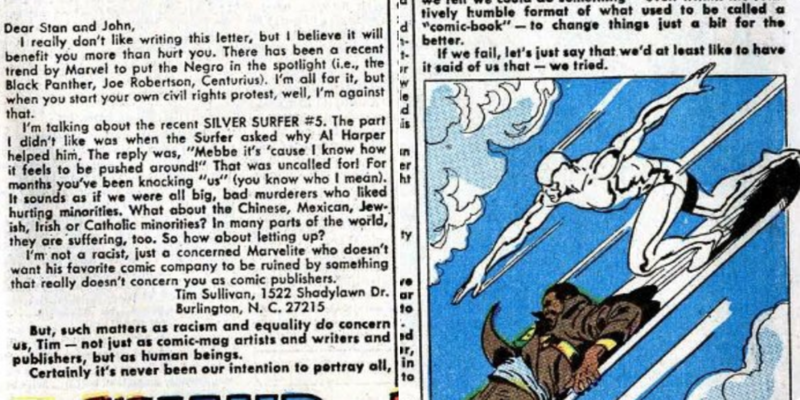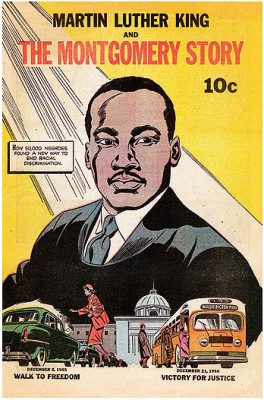I was excited to see the proposal for Femme Magnifique, a comic anthology with “inspirational” stories about “powerful” mostly-American women. The name was frankly a turn-off for me. I guess it’s supposed to be French but I don’t think of my self as “femme” in the typical American use of the term, and it seems kind of insensitive or clueless about trans identity (although there is at least one trans woman included).
I guess they were trying to make it appealing to a less-politicized audience, but I’m concerned that it’s pretty heavy on white women and entertainment figures (Beth Ditto?) and light on civil rights and feminist leaders. Where are Angela Davis, Ella Baker, Fannie Lou Hamer, Ida B. Wells, Grace Lee Boggs, Ava Duvernay, Carrie May Weems, bell hooks? Not even Ruth Motherfucking Bader Ginsburg?
Nevertheless it does sound like a good project with some really great artists, and I donated last week. Yesterday their Kickstarter hit 100%, so it’s going to happen! They have more rewards that will be released if they make their extra “stretch goals.”


 All of the comics in The Village Voice‘s
All of the comics in The Village Voice‘s